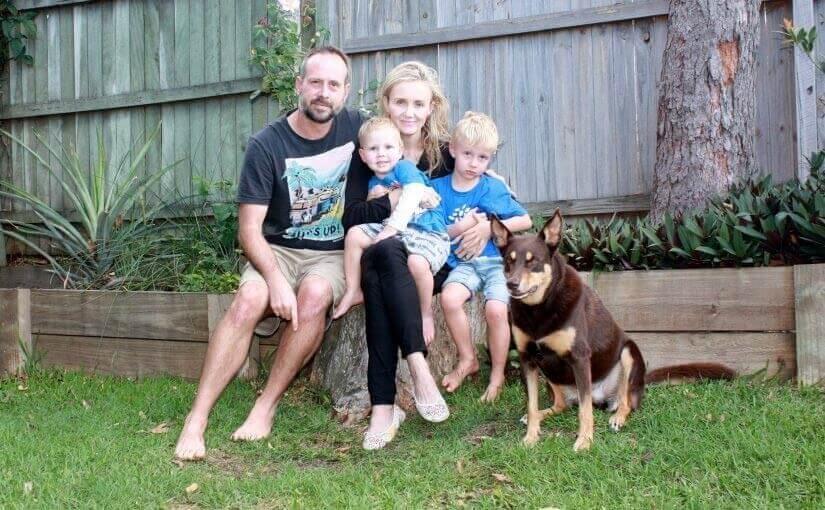Sally Kriel knows all too well the impact of a bowel cancer diagnosis and is concerned by the lack of awareness and participation in testing.
The Sunshine Coast nurse and mother of two was diagnosed with bowel cancer in 2018 at just 38 years old.
“We are lucky that we live in a country where we have these tests available, so people really need to take part in screening, and listen to their body if something isn’t right.”
Ms Kriel was referred for a colonoscopy when she experienced stomach cramps and bloating.
“They removed two polyps from my bowel and pathology testing confirmed there was cancer present in one of them, it was so small a CT scan would have missed it. My surgeon said I am an ‘unlucky, lucky person’ because I was healthy and had no risk factors for bowel cancer, so I was lucky that the cancer was caught early.”
A study published in the May edition of The Lancet showed bowel cancer cases in people under 50 have risen in the last 10 years.1
Pathology Awareness Australia ambassador, Dr Nick Musgrave is an anatomical pathologist who specialises in gastrointestinal pathology:
“With the data showing an increase in bowel cancer in younger Australians, anyone with symptoms should talk to their doctor. However, cancers can develop over several years and at the early stages may have few or no symptoms. That’s why it is important people take part in the screening program from the age of 50, to have the best chance of catching cancer early,” said Dr Musgrave.
Bowel cancer is Australia’s second biggest cancer killer, yet the 5-year survival rate for stage I bowel cancer is 99% and stage II is 89%.
For stage IV bowel cancer (metastatic cancer) the 5-year survival rate is just 13%.2
Ms Kriel’s cancer was at stage I and had not spread. She had surgery to remove half her bowel but was able to avoid radiation and chemotherapy after surgery.
“My bowel will never be the same, but chemotherapy is very gruelling and I was really worried about this when I was first diagnosed because it would mean prolonged illness and being away from my family. The psychological toll and financial burden of a cancer diagnosis and treatment is huge, especially for a younger person, you have your mortality thrown in your face.”
Despite this, a report released this month by the Australian Institute of Health and Welfare (AIHW) 2 shows bowel cancer screening participation rates are worryingly low, just 41% in 2016-2017. And the participation rate was very poor (30%) in the younger age group, 50-54 years.
Dr Musgrave has called the numbers “astounding”.
“When you consider that bowel cancer in its early stages has a high survival rate but with late stage bowel cancer the survival rate is pretty dreadful, it is astounding that more people are not having the test. This is one of the cancers that we are able to screen for, so we must do everything we can to reduce the risk of having advanced disease,” said Dr Musgrave.
Under the National Bowel Cancer Screening Program, Australians aged 50-74 are sent testing kits in the mail to collect a faecal sample that is then posted to a pathology laboratory to be examined.
“I’ve turned 50 this year myself, and I know there’s an ‘ick’ factor with the test, but some people make too big a deal of having to sample their own faeces and may not realise that the test is actually pretty simple,” said Dr Musgrave.
“We know that participation rates for both cervical and breast cancer screening are much higher. The bowel cancer test is free of charge, is non-invasive and you don’t need to leave the house to collect your sample, when you weigh that against the potential impact of advanced cancer the number of Australians getting tested is far too low.”
Sally hopes her story will raise awareness of bowel cancer and encourage more people to take part in screening:
“I’m sure if we offered to turn back time for every bowel cancer patient to have early screening and an early diagnosis – they would take the opportunity in a heartbeat. The later the diagnosis, the more invasive the treatment needs to be, and the lower the survival rate.”
References

